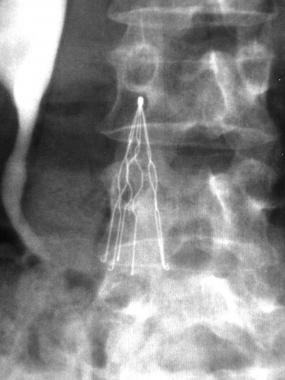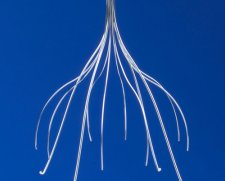Surgeons implant inferior vena cava (IVC) filters in the veins of patients to prevent blood clots from moving into the lungs. The IVC filters are designed to catch the clots in the bloodstream and over time, the clots will dissipate. But faulty IVC filters have fractured, punctured veins, and migrated to other areas of the body to cause serious medical issues.
Due to these complications, recipients of IVC filters are filing legal claims alleging that filter manufacturers C.R. Bard and Cook Group, Inc. failed in their duty to exercise reasonable and prudent care in the development, testing, design, manufacture, inspection, marketing, labeling, promotion, distribution, and sale of the filters and knew or should have known about the dangers.
IVC Filter Litigation
The first IVC filter lawsuits were filed against C.R. Bard in California and Pennsylvania state courts in 2012. Other claims include the following:
- A class-action claim was filed in 2012 in Philadelphia (Pa.) County Court after one plaintiff received a Recovery filter in 2005 and another received one in 2008, and both allege that Bard concealed health hazards from the Recovery, G2, and G2 Express filter recipients.
- A 2013 claim was filed in the Northern District of Illinois surrounding a 2009 procedure that involved the insertion of a G2 filter. Nearly two years later, the patient went back to the hospital complaining of chest pain, nausea, vomiting, difficulty breathing, cough, weakness, and dizziness, according to court documents.
- In October 2014, the U.S. Judicial Panel on Multidistrict Litigation consolidated lawsuits from 11 federal districts into the Southern District of Indiana before Judge Richard L. Young, and a large number of Bard IVC filter lawsuits are expected to be consolidated by the end of 2015.
- In February 2015, C.R. Bard settled an IVC filter case 10 days after the trial began. According to court documents, the Bard Recovery IVC filter broke inside a patient’s body, and one of the small metal legs traveled to his heart, perforating it. The tear required the man to have open-heart surgery.
- On August 19, 2015, the JPML panel created MDL 2641: In Re Bard IVC Filters Products Liability Litigation. These cases filed in the federal court system will be consolidated for pre-trial discovery and work up in front of the Honorable David G. Campbell for the District of Arizona.
In addition to all the risks associated with IVC filters, the benefits are also being questioned. A recent study published in the Journal of the American Medical Association concluded that IVC filters provide no advantage whatsoever over anticoagulant drugs that thin the blood to prevent clots.
Other IVC Filter Lawsuits News
An Arizona judge denied class certification for Bard IVC filter lawsuits, citing differences among plaintiffs' devices and claims. These lawsuits allege serious injuries from defective IVC filters and insufficient risk warnings.
A new study suggests IVC filters may increase pulmonary embolism risks in traumatic spine injury patients, raising concerns about their safety compared to other preventive treatments.
Studies reveal that Cook Medical’s Celect IVC filters may puncture the vena cava within two months, leading to serious complications and fueling thousands of lawsuits alleging defective design and failure to warn.
A recent study suggests IVC filters may be overused in managed care, often left in place longer than FDA guidelines recommend, raising concerns about patient safety and medical oversight.
Many IVC filters remain in patients indefinitely despite FDA recommendations for removal, raising concerns about serious complications such as fracture, migration, and vena cava perforation.
A new bellwether schedule has been issued in Bard IVC filter litigation, as thousands of lawsuits move forward alleging serious complications linked to the company’s retrievable devices.







